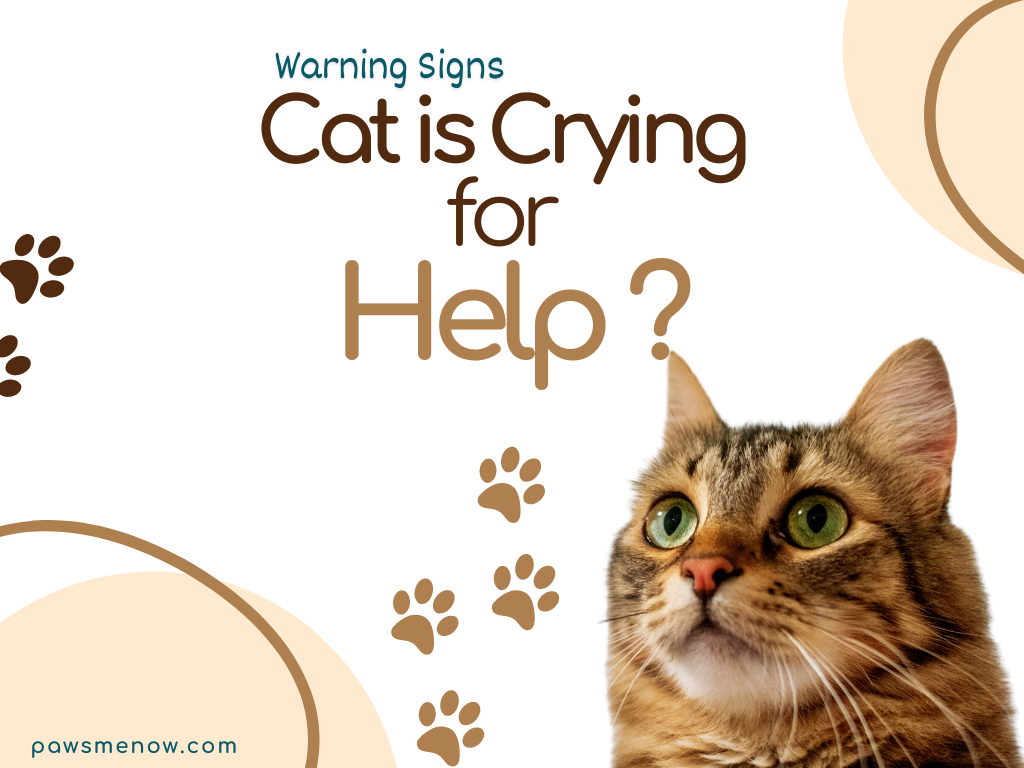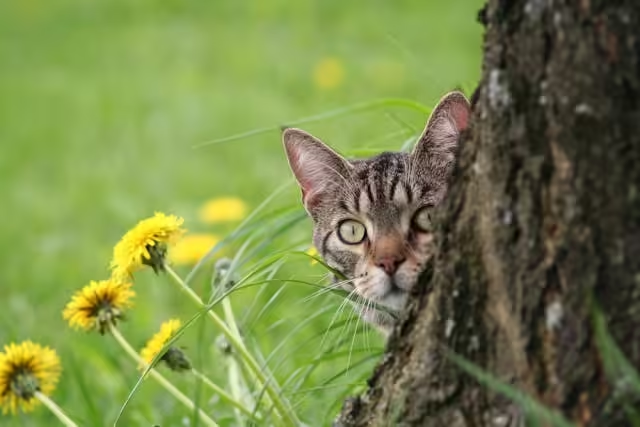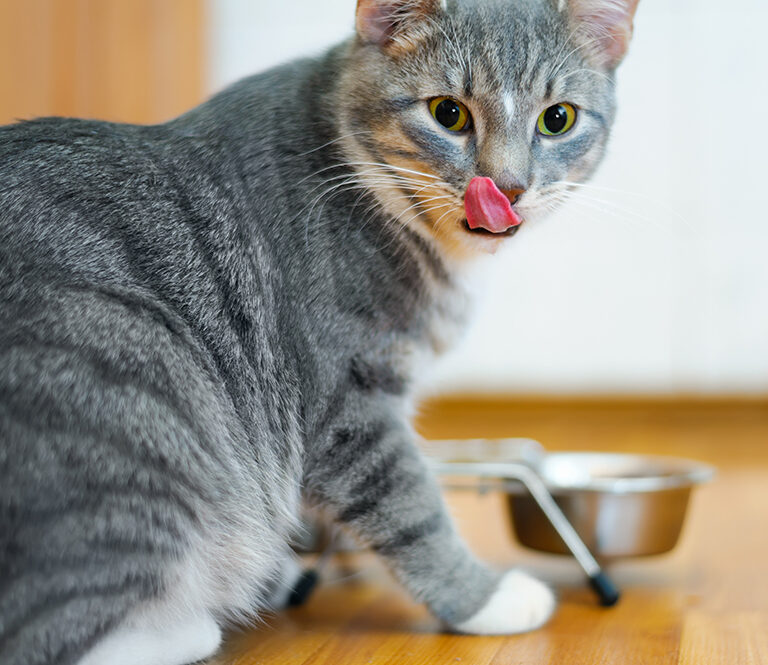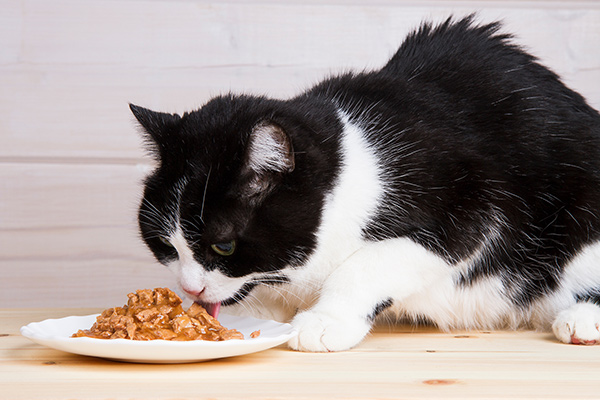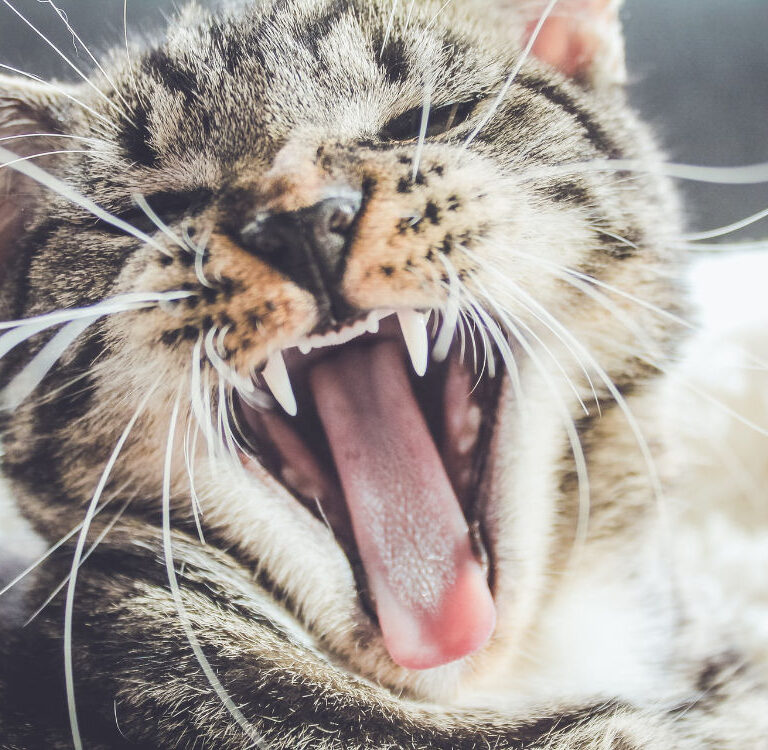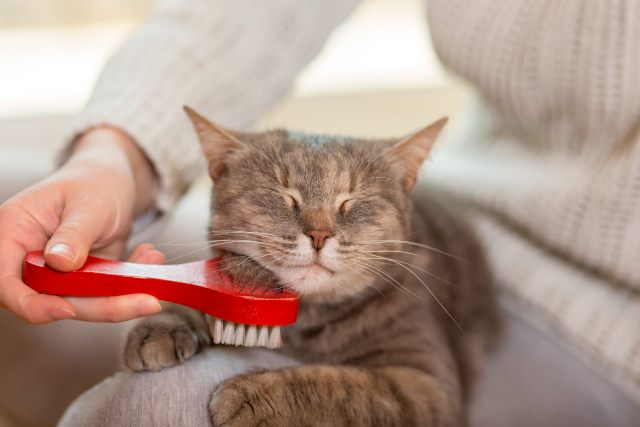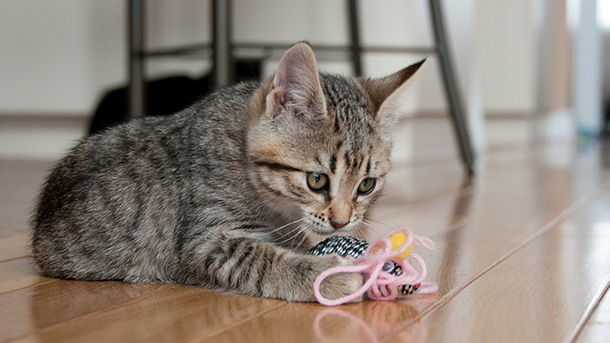10 Warning Signs to Identify Your Cat is Crying for Help
As a cat parent, it’s important to know when your cat is crying for help. Technically cats don’t cry, but their behavior and other signs can reveal if they’re in pain, trying to tell you something’s wrong. As Cats are masters at hiding when they’re sick, it can be tough to spot the illness. From my own experience, I’m sharing the top 10 warning signs to help you better understand your cat’s behavior and know when something might be off.
Common signs that your cat isn’t feeling well include vomiting, loss of interest in playing, and lounging around all day. However, there are more serious signs that can indicate something is really wrong.
Warning Signs Your Cat is Crying for Help
Start by keeping an eye on your cat’s daily routine. If something seems off, pay even closer attention. Don’t ignore any signs—if you have any doubts, consult your vet right away.
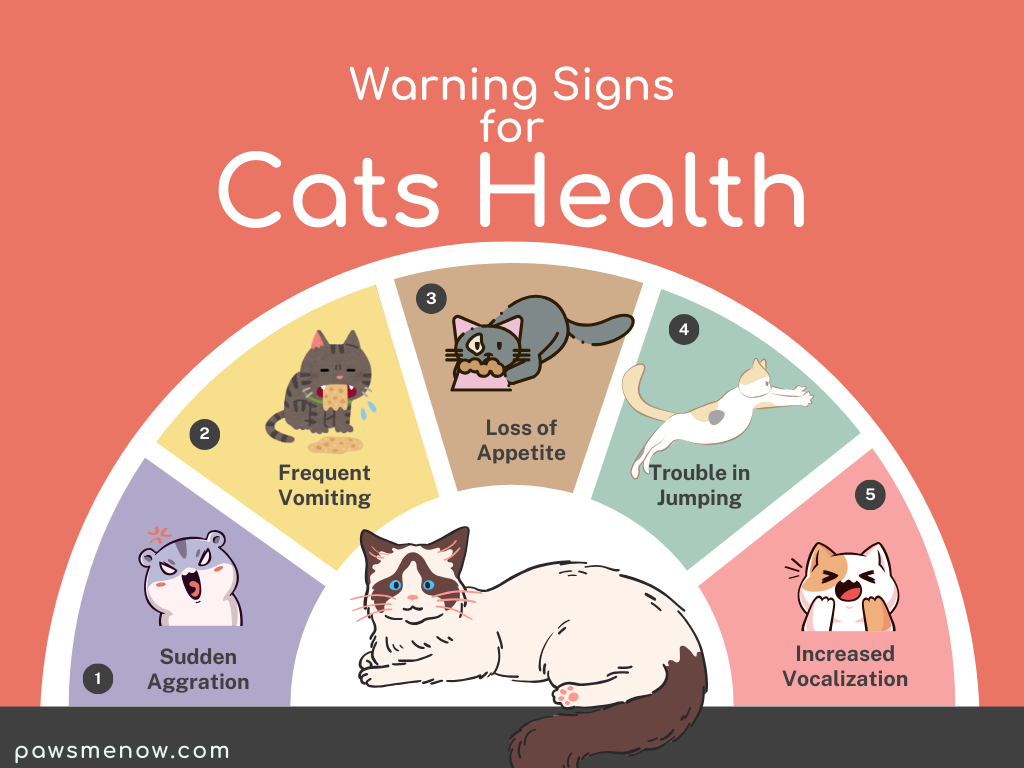
Sudden Behavioral Changes
As a cat owner, you’re already familiar with your cat’s usual routine and behavior. Pay attention to any changes. If you notice sudden aggression, dizziness, or your cat acting differently than usual, it could be a warning sign. Cats are typically calm and playful, so if something seems off, it may mean your cat isn’t feeling well. If you spot anything unusual, consult your vet.
Trouble in Jumping
Cats are amazing jumpers—they can leap over 6 feet! The little predator you’re petting at home can usually jump effortlessly. But if you notice your cat isn’t jumping as much or is choosing to walk instead of jumping like they used to, it could be a red flag. Cats often avoid jumping when they’re in pain or not feeling well. If you see this change it might be your cat is sick. Pay attention and consult your vet.
Increased Vocalization
You know how your cat usually communicates—mostly through expressions and not much vocalizing. But when they’re not feeling well, they might become more vocal. Sometimes, they’ll even let out low-pitched yowls that sound like crying, which can mean they’re depressed or upset. Pay attention to these vocal changes. If your cat is meowing too loudly or too softly, it could be a sign something’s wrong. Try to comfort them, and reach out to your vet.
Loss of Appetite or Increased Thirst
Cats aren’t big fans of water, but they do drink it—even if you don’t always notice. However, if you suddenly see your cat drinking more frequently than usual, it could be a sign of increased thirst. This can happen if your cat is dealing with kidney disease or another type of infection. And this can affect its meals as well. If you see your cat stop eating entirely or eating way to less than normal, consult your vet immediately.
Frequent Vomiting
Cats sometimes vomit to get your attention, but if your cat is throwing up more often—especially right after meals or at random times—it could be serious. Pay close attention to the color of the vomit. If you notice anything unusual, consult your vet immediately.
Skin Irritation or Changes in Coating
If you notice your cat scratching constantly, it might be a sign of skin issues. Fleas or allergies often cause this and can even lead to fur loss. It’s dangerous, and you should not neglect it. Though you can try some homemade cat flea remedies, it’s best to consult your vet to avoid letting your cat suffer any longer.
Short Breathing
Rapid or short breathing is a serious sign you shouldn’t ignore. While cats may breathe faster when excited or after play, if it happens during rest, consult your vet immediately.
Discharge from Eyes & Nose
If you notice a liquid discharge from your cat’s eyes or nose, it could be due to a respiratory infection. If you hear unusual sounds while they’re breathing—not just purring—your cat might be seriously ill. Contact your vet immediately.
Overgrooming
Cats are naturally clean and groom themselves often. However, if you notice your cat overgrooming, it could be a warning sign. Cats tend to overgroom when they’re in pain, unwell, or stressed.
Bad Breath
Cats often have bad or smelly breath when dealing with dental infections. Don’t ignore this sign, as it could lead to tooth loss for your cat if left untreated.
Handling Emergency Situations
Emergencies can happen, and you need to act fast. If your cat shows any of the following symptoms, don’t wait for an appointment—take them to the nearest vet immediately. It’s also a good idea to save your vet’s contact number in your phone, so you can reach them quickly in case of an emergency.
- Unconsciousness: If you see your cat become unconscious, take it to the vet immediately
- Trauma: If your cat falls from a height or has an accident, seek immediate treatment.
- Imbalance or Inability to Walk
- Foaming at the mouth
- Breathing Problems
To stay on the safe side, consider consulting with mobile vets ahead of time, so they can come to your home if you’re unable to transport your cat. It’s also helpful to stay connected with your local pet community for support if needed.
Tips to Keep Your Cat Happy & Healthier
It’s not that hard to keep your little cat happy and healthy. All they need is a bit of care and your attention! Playing with your cat is one of the easiest ways to keep them happy. While cats aren’t as social as dogs, they do enjoy watching the world outside. Whenever I go to the beach, I take my cats with me, and they love chasing seagulls. If you don’t have a beach nearby, you can take them to the nearest park. Alternatively, you can build a cat house or make DIY cat toys for them to play with at home. The happier they are, the healthier they’ll be. Treat them like family, because that’s exactly what they are!
Let me know in the comments which activity your cat loves the most!

